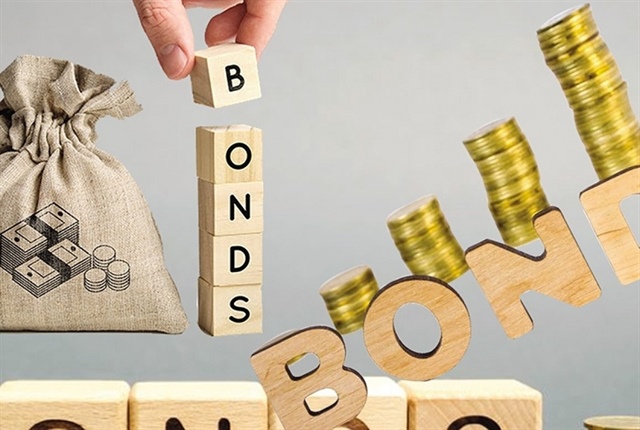Corporate bonds unsalable: money runs out or faith exhausted?
Corporate bonds unsalable: money runs out or faith exhausted?
Unable to borrow money from banks, businesses have to issue corporate bonds to raise funds. However, it’s very difficult to issue bonds at this moment.

Two years ago, Quoc Cuong Gia Lai (QCG) issued 195 billion dong worth of convertible bonds. However, only 30 percent of the 195 billion dong has been converted into shares. Investors would rather take money back than becoming shareholders of Quoc Cuong Gia Lai.
This means that QCG will have to repay money to the bond holders who do not want to convert the bonds. This is really a bad scenario for the real estate group, which is now facing big challenges because of the frozen real estate market and the high inventories.
The finance report of the group showed the bad performance of the business with loss reported for the whole year 2011 and the first quarter of 2012. QCG also has to restructure the bank debts, worth 1825 billion dong by the end of the first quarter of 2012, while the cash balance had dropped to 10 billion dong by that time.
Only 17 percent of the 3 trillion dong worth of 57-year corporate bonds the Vietnam Coal and Mineral Industries Group (Vinacoal) offered has been sold, which is described as a “failure.”
The unsuccessful bond issuances by QCG and Vinacomin have raised big worries about the performance of the bond market in particular and the capital market in general.
The current situation seems to be quite different from the situation of some years ago. At that time, all the corporate bond issuance campaigns attracted the special attention from the public.
Masan Group (MSN), a consumer goods manufacturer, for example, wrapped up the conversion of bonds into shares recently.
In September and October of 2009, MSN issued hundreds of billions of dong worth of convertible bonds to investment funds, including Texas Pacific Group (TPG) with strict conditions. Especially, the investment funds were asked to hold the bonds for at least 18 months.
TPG accepted the strict conditions laid down by MSN and bought 630 billion dong worth of bonds. The investment fund had completed the conversion of bonds into shares by the end of June 2012 at 20,374 dong per share (the current price of MSN shares is 100,000 dong per share). This means that TPG has made a huge profit in the deal.
Investors lacking confidence, not money
Explaining the disappointed bond issuance by Vinacomin, experts said the interest rates offered by the economic groups were lower than the investors’ expected rates.
According to Nguyen Van Bien, Deputy General Director of Vinacomin, only four investors registered to buy 500 billion dong worth of bonds with the interest rate of 14.5 percent fixed for the first year.
Bien said the interest rate of 14.5 percent is not low, if compared with the forecast inflation rate of 7-8 percent this year. However, the investors still found the bonds unattractive.
Three possible scenarios have been cited to explain the failure of the bond issuance campaigns: 1) investors do not have confidence on businesses 2) the capital on the market is not profuse, while there are too many investment opportunities; and 3) both the two reasons.
Analysts have affirmed that the key problem here is the lack of confidence on enterprises’ business performance. Investors did not want to inject money in the two big corporations because they saw the current financial problems and the dark prospects of the enterprises.
Quoc Cuong Gia Lai took loss in 2011 and the first quarter of 2012, while the share prices dropped continuously one month before the conversion time. As such, investors could not see any attractiveness here, when the conversion price was 10,524 dong per share, higher than the market price at 9000 dong per share.
One US dollar is equal to 20,000 Vietnam dong.
vietnamnet

















